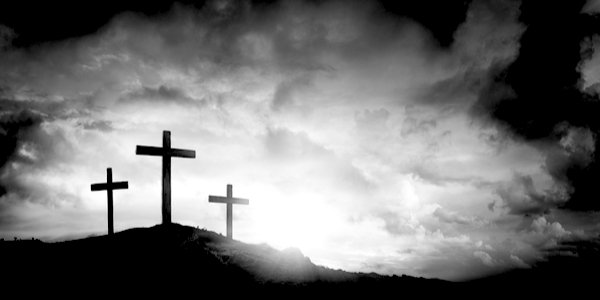HERE in the West we Christians get ourselves hot and bothered about such matters of concern as whether we should attend same-sex weddings, women in leadership positions or the type of worship music we use. Elsewhere in the world church life is dominated by different concerns. In Nigeria, a member of the Commonwealth and the country with the largest mixed Christian/Muslim population in the world, the main concern of Christians is how to avoid being murdered for their faith.
At least 52,000 Christians have been killed in Nigeria since 2009, reports the International Society for Human Rights and the Rule of Law (Intersociety). Seventeen Christians a day were murdered for reasons related to their faith during the first half of 2020. According to Intersociety, roughly five million Christians have been displaced and forced into Internally Displaced Persons (IDP) camps within Nigeria and refugee camps at regional and sub-regional borders.
The church in Nigeria is facing what many there describe as a genocide. Open Doors records that more than 365million Christians in the world, that is one in seven, faced high levels of persecution for their faith as of late 2023. Amongst these, Nigeria accounts for almost 90 per cent of all Christians martyred for their faith worldwide. In their latest report, Aid to the Church in Need indicated that more than 7,600 Nigerians had been murdered because they were Christians between January 2021 and June 2022.
We are told that events such as the Christmas massacres in Nigeria’s Plateau State, which claimed the lives of more than 300 Christians, have social and economic roots. Fulani herdsmen from the north come into contact with Yoruba farmers in the centre of the country; this engenders conflict over land and resources. That the Fulani are Muslims and the Yoruba Christians is portrayed as incidental.
This is to ignore a clear pattern in the violence of targeting Christian churches, schools, residences and other facilities. More than 17,000 churches and 2,200 Christian schools have been set ablaze since 2009. These attacks are not being carried out by otherwise peaceful herdsmen concerned about grazing rights but by well-armed Muslims from the north determined to expand their domination southward. In a statement concerning the Christmas massacres Plateau governor Caleb Mutfwang said: ‘This indeed has been a gory Christmas for us,’ noting that the attacks were ‘well-coordinated’ and carried out using ‘heavy weapons’.
The attacks are not carried out by Fulani tribesmen alone. In May 2022 a video was released showing 20 Nigerian Christians being executed by Muslim terror group Boko Haram/ISWAP. It was Boko Haram which in 2014 kidnapped 276 mostly Christian schoolgirls from a school in Chibok in Borno State. As of April 2021 more than 100 of the girls are still missing, some presumed dead. Amnesty International estimated in 2015 that at least 2,000 women and girls had been abducted by the group since 2014, many of whom had been forced into sexual slavery.
There have been serious allegations that the genocide of Christians in Nigeria is being conducted with the complicity of some in the national and state governments. ‘The government of Tinubu is part of the butchering machinery,’ said Emeka Umeagbalasi, a criminologist and grassroots human rights and democracy campaigner, referring to Nigerian President Bola Tinubu, who took office in May last year. ‘The Fulani jihadist rose to power under the Buhari administration [the previous president] and was able to take control of everything.’ Umeagbalasi asserted that Tinubu is set to perpetuate Buhari’s heritage.
On occasion the police are complicit in the attacks, he said: ‘Some police stations haven’t responded to brutal anti-Christian violence even when loud gunfire and screams are clearly audible from less than a mile away.’ Data on cellphones inadvertently left behind by the killers have identified owners of the phones as government insiders.
Amid growing alarm about the increasing violence in parts of Nigeria and the failure of Christians elsewhere to acknowledge what is happening, Roman Catholic Bishop Jude Arogundade said that ‘no one seems to pay attention to the genocide’ taking place in swathes of the north and the Middle Belt: ‘The world is silent as attacks on Churches, their personnel and institutions have become routine. How many corpses are required to get the world’s attention?’ Bishop Arogundade’s Ondo diocese was targeted by Muslim gunmen who killed 40 worshippers at a packed Sunday service in June 2021.
The UK’s trade relationship with Nigeria was worth more than £6.7billion in the year to the end of September 2023. If the UK can threaten sanctions regarding Nigeria’s economic corruption, we can threaten sanctions concerning anti-Christian violence. One way of compelling the Nigerian government to act is by tying foreign aid to religious freedom. Any aid sent to Nigeria should be focused on protecting Nigerian citizens from the depredations of Muslim terrorists. If we do nothing, the murders will continue with catastrophic consequences, including the total Islamisation of central Nigeria.
The future of Nigeria’s Christians lies to a considerable extent in the hands of Western Christians. Yes, we should pray for Nigeria and exert pressure on our denominations to highlight the plight of Nigerian Christians. But our governments must also be pressurised to compel the government of Nigeria to do more than just mouth platitudes of concern while failing to halt the assaults.
In the West we may have legitimate concerns. We should not dismiss their significance. However, we can still go to church on Sunday without taking our lives in our hands, we can still live without fear of our children being kidnapped from their schools, we can still leave our homes without concern that they will be burnt down. Not all our brothers and sisters in Christ can say the same.
This article appeared in A Grain of Sand and is republished by kind permission.











